The world of business is always changing, and that means the education needed to prepare future leaders must evolve as well. When it comes to succeeding in the business world, many people see MBA programmes, or Master of Business Administration programmes, as a crucial stepping stone. However, we often find ourselves wondering about the future of these programmes. How will they adapt to meet the changing needs of students and employers? In this article, we will explore various aspects of the future of MBA programmes.
Adapting to New Trends
One of the primary questions surrounding the future of MBA programmes is how they will respond to the evolving demands of the business landscape. With industries continuously transforming, it’s crucial for MBA programmes to stay relevant. This means they must address the specific needs and challenges faced by businesses today. By incorporating the latest trends and developments in the curriculum, MBA programmes can ensure that graduates are equipped with the knowledge and skills required in the dynamic business world.
Flexibility is another key aspect that will shape the future of MBA programmes. Many aspiring business professionals face time constraints due to work or personal commitments, making it difficult to pursue a traditional full-time MBA. Recognizing this, MBA programmes are exploring flexible learning options to cater to the needs of working professionals. Part-time, online, and executive MBA programmes are gaining popularity as they allow individuals to balance their education with their current responsibilities. These flexible formats provide opportunities for growth and advancement without interrupting one’s career trajectory.

In addition to flexibility, MBA programmes are also focusing on experiential learning. The future of these programmes lies in providing students with hands-on experiences that bridge the gap between theory and practice. By engaging in internships, consulting projects, or simulations, students can gain valuable insights into real-world business scenarios. This experiential approach helps them develop practical skills and problem-solving abilities that are essential for success in their future careers.
Technology is another critical factor that will shape the future of MBA programmes. In an era where technology plays a pivotal role in almost every industry, it is imperative for business professionals to be tech-savvy. As a result, MBA programmes are integrating technology-related courses into their curriculum. Students can expect to learn about topics such as data analytics, artificial intelligence, and digital marketing. This focus on technology not only equips MBA graduates with the skills to thrive in the digital era but also fosters a mindset of adaptability and innovation.
A Degree in MBA at the Best University in North India
SRM University Sonepat is a globally ranked 4-Star university with a ‘Diamond’ rating by QS-IGAUGE India. It is the first Indian University powered by NASSCOM Future Skills. It has also earned the recognition of being the first university to have an academic Affiliate with IET in Haryana. Bagging 70+ professional career programmes, SRM University Sonepat has become one of the leading educational institutions that offers a multitude of growth possibilities. The best university in north India offers a dual specialization option (Entrepreneurial Development and International Exposure), which allows students to gain expertise in two fields of their choice. This provides students with a competitive edge in the job market.
Entrepreneurial Development: The MBA programme at SRM University Sonepat places a strong emphasis on entrepreneurial development. Here, students are ardently nurtured and guided on the path of entrepreneurial prowess to develop business plans and pitch them to industry experts, providing them with practical experience in starting a business.
International Exposure: SRM University Sonepat offers a range of international programmes and collaborations with top universities, providing students with exposure to global business practices and cultures.
SRM University Sonepat has a faculty of highly experienced professors who are experts in their respective fields. They impart knowledge and skills to students through a mix of lectures, case studies, and practical assignments.
SRM University Sonepat offers a wide range of UG, PG, and PhD-level courses, such as BTech, MTech, BA, MBA, LLB, and PhD, among various others. The detailed information is mentioned below:
- B.B.A. (Duration: 3 years)
- B.B.A. with specialization in Business Analytics (in association with IBM) (Duration 3 years)
- M.B.A. (Duration: 2 years)
- M.B.A. – Big Data Analytic (Duration: 2 years)
- M.B.A. – Artificial Intelligence and Machine Learning (Duration: 2 years)
- B.E. / B.Tech. (18 Courses)
- M.E. / M.Tech. (4 Courses)
- MCS (Biotechnology)
- PhD (17 Courses)
- B.SC (8 Courses)
- BCA (1 course)
- B.A. (4 Courses)
- M.A. (1 course)
- M.SC (6 Courses)
- B.A. LLB (Hons)
- LLM (4 Courses)
- B.COM (1 course)
- M.COM (1 course)
- Certificate Course
The university has state-of-the-art infrastructure that includes modern classrooms, well-equipped labs, a library, and a computer centre. This ensures that students have access to the latest technology and resources to support their learning.
The MBA programme at SRM University Sonepat is designed to equip students with the knowledge and skills required to succeed in the business world. The curriculum is regularly updated to keep up with the changing trends and demands of the industry.
SRM University Sonepat has a strong network of industry partners such as Siemens, TCS, Xebia, NASSCOM, Futureskills, and Reliance Jio Infocomm Limited that regularly recruit students for internships and job opportunities. This provides students with practical experience and exposure to the corporate world.
Vibrant Career Possibilities of MBA
The acquisition of a Master of Business Administration (MBA) opens up a wide range of career possibilities across various industries and sectors. The versatile skill set and comprehensive knowledge gained through an MBA program prepare graduates for leadership and management roles.
MBA graduates possess the analytical, problem-solving, and strategic thinking skills necessary to provide consulting services to organizations. With a strong foundation in finance and a deep understanding of financial markets, MBA graduates often excel in finance-related roles. They may work in investment banking, corporate finance, private equity, or venture capital, managing financial assets, evaluating investment opportunities, and making strategic financial decisions.
Many MBA graduates are drawn to the path of entrepreneurship, utilizing their business acumen and knowledge to launch their own ventures. Their comprehensive understanding of business functions and strategies provides a solid foundation for navigating the challenges of starting and running a successful business.
Now is the perfect time for you to take a step towards unbolting the door to your aspirations and embrace the myriad of successive moments for eternity.
For more details, you can visit the website https://srmuniversity.ac.in






